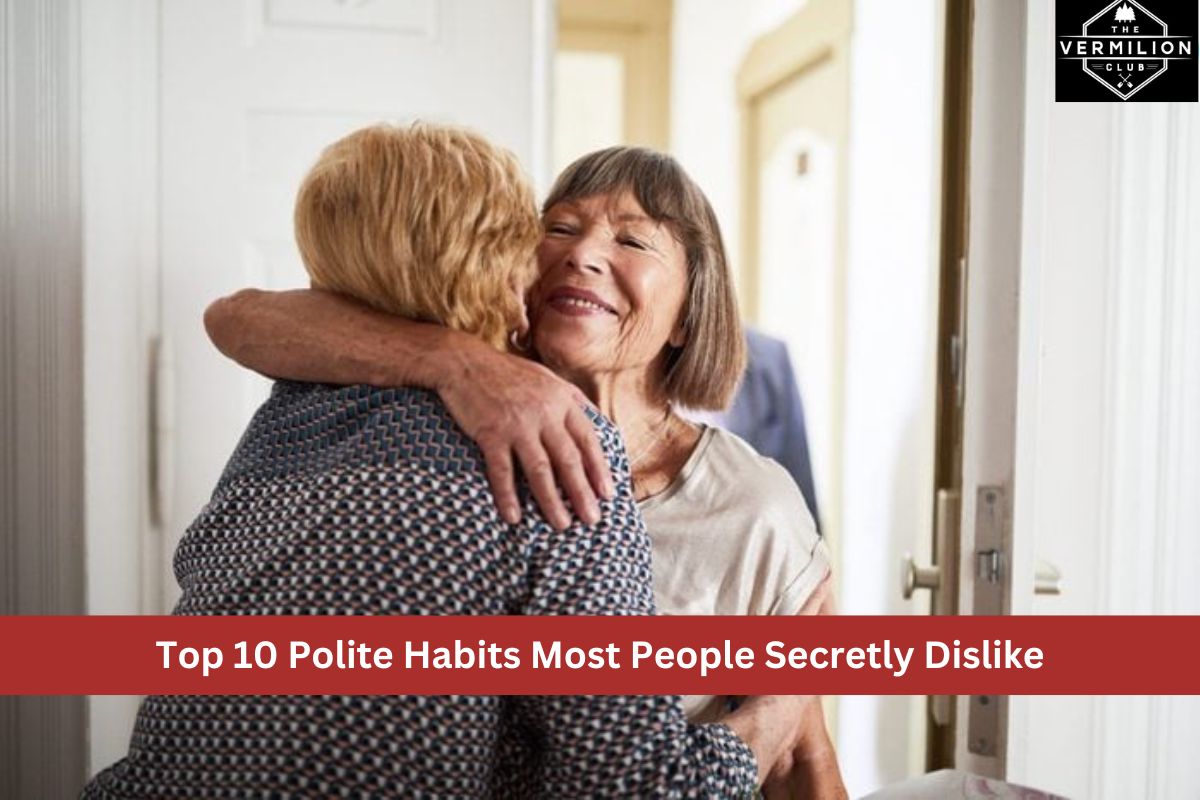Top 10 Polite Habits Most People Secretly Dislike: In spite of the fact that politeness is typically valued, there are certain behavior’s that some individuals find irritating or dishonest, despite the fact that they appear to be courteous. Ten of these habits are as follows.
Advertisement
Top 10 Polite Habits Most People Secretly Dislike
- While politeness is generally appreciated, there are certain habits that some people find irritating or insincere despite their polite veneer. Here are ten such habits Even though you mean well, some of the things you do to be nice might bother the people you care about. That can be fixed here.
- Of course, it’s easy to mess up when it comes to being nice and following the rules of etiquette. A lot of rules about how to behave have changed in just the last ten years. There are also times when the things you try to do because you think they are nice can backfire.
- For many of these, the problem comes up because you know the other way is rude and then fix it too much. You just need to find the middle ground. Lisa Grotts, a manners expert, can help you do that.
- She says, “Being polite isn’t about following complicated rules. Instead, it’s about being kind and respectful, working together, and putting others first—sometimes even yourself” in every scenario.
- She also says that the person is much more important than the polite habit. This will help you figure out what to do if you ask yourself, “Is this kind or helpful?” instead of “Is this polite?”
1. Over-Apologizing:
- Constantly saying “sorry” for minor things can come across as insincere or lacking confidence.
- Constantly uttering “sorry” for minor or insignificant matters may convey a lack of confidence or assertiveness, potentially undermining one’s professional image or social standing.
- Moreover, excessive apologies can dilute the sincerity of genuine apologies, making it harder for others to discern when one truly means it
Advertisement
2. Excessive Complimenting
- Receiving too many compliments can feel disingenuous or manipulative. When someone showers praise excessively, it can come across as disingenuous, especially
- if the compliments are not specific or genuine. People may perceive it as an attempt to manipulate or win favor rather than genuine
Also See
9 Tips for Better Seed Germination Rates This Season
Advertisement
3. Interrupting
- :Interjecting in conversations can be seen as disrespectful or dismissive of others’ thoughts and opinions. Interjecting in conversations can be seen as disrespectful or dismissive of others’ thoughts and opinions.
- Interrupting not only disrupts the flow of conversation but also signals a lack of regard for others’ contributions. It can make people feel unheard or devalued, leading to frustration and resentment.
4. Overusing “Please” and “Thank You”
- While politeness is vital, excessive use of these phrases can feel forced or insincere, diminishing their impact. Genuine gratitude and politeness come across more effectively when used selectively and sincerely,
- rather than as a habitual reflex.Using terms of endearment like “sweetie” or “honey” with acquaintances can be seen as overly familiar or patronizing. Reserving such terms for close relationships respects boundaries and avoids potential discomfort or offense.
Advertisement
5.Leaving long voicemails
- A twenty-year-ago voicemail was everything because, well, it was everything. You could only leave a message or write the person from your (not portable) desktop computer to let them know why you called.
- At that time, it was polite to leave a detailed message that often repeated information so that people could get all the information they needed before calling you back.
- Those days? Voicemail is something that most people hate and think is a waste of time. “You’re lucky if they answer the phone,” says Boyd. “Even fewer people listen to your whole voicemail.” “Texting is a lot more common and useful.”
6. Exaggerated Smiling
- Excessive smiling, especially in inappropriate contexts, can create discomfort or suspicion. Genuine smiles convey warmth and sincerity, but exaggerated or insincere smiles may be perceived as artificial or insincere, undermining trust and rapport.
Advertisement
7. Faking Interest
- Pretending to be interested in something can come off as disingenuous or patronizing.
- genuine interest fosters meaningful connections, while faking interest can create distance and distrust in relationships.
8. Being Too Agreeable
- Always agreeing or avoiding conflict can make others doubt your sincerity or authenticity. Assertiveness and honesty, even
- when they lead to disagreement, are essential for maintaining genuine connections and mutual respect.
Advertisement
9. Giving Unsolicited Advice
- Offering advice without being asked can be intrusive or condescending. Respecting others’ autonomy and boundaries means refraining from imposing advice unless it’s explicitly sought.
10. Ignoring Boundaries
- Disregarding personal space or boundaries can make others feel uncomfortable or disrespected. Respecting boundaries demonstrates empathy and consideration for others’ comfort and autonomy.
- Using terms of endearment like “sweetie” or “honey” with acquaintances can be seen as overly familiar or patronizing. Reserving such terms for close relationships respects boundaries and avoids potential discomfort or offense.
- While politeness is important, excessive use of these phrases can seem forced or insincere.
Advertisement



